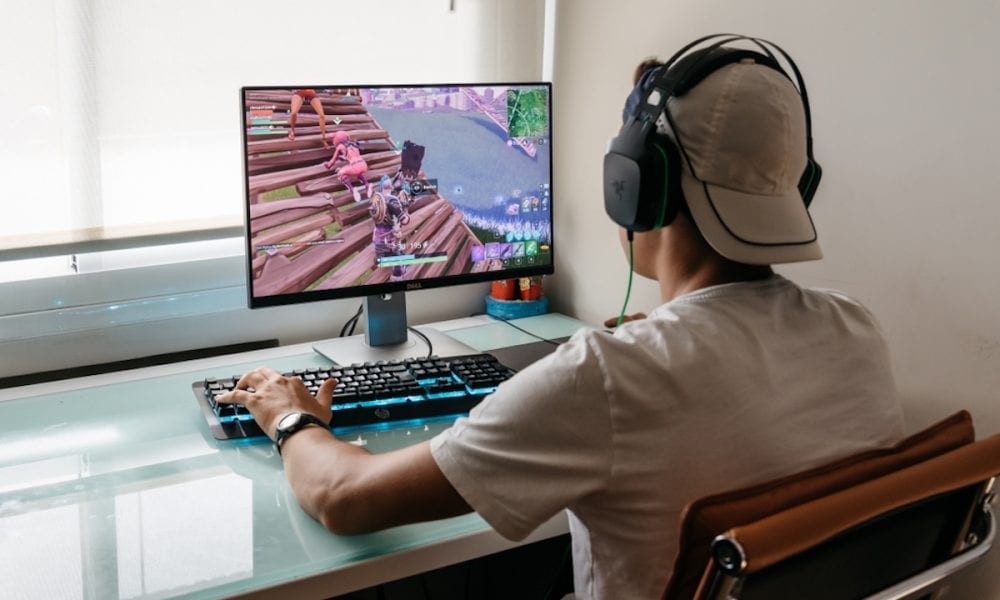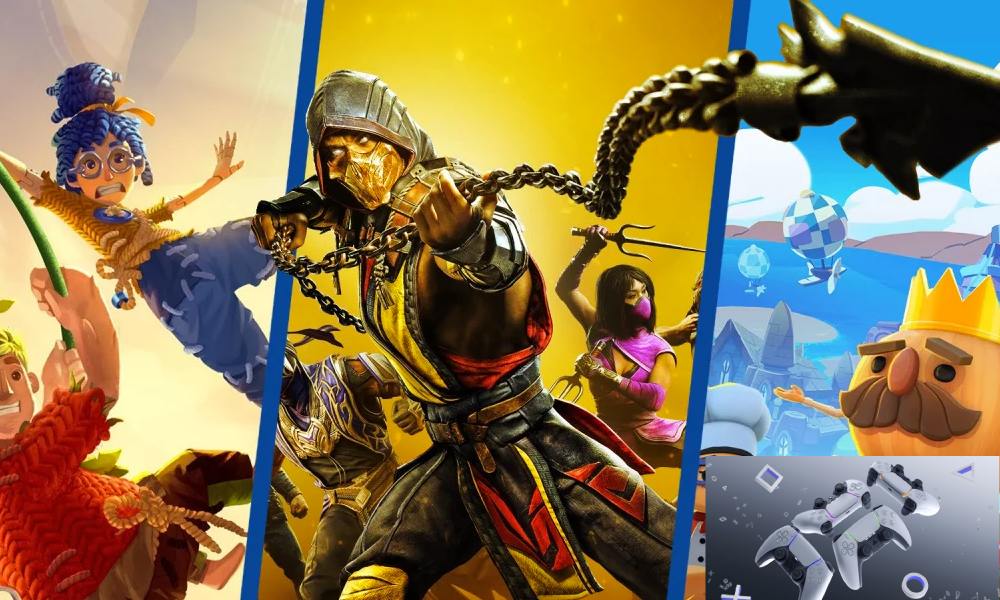Let’s Play
The gaming industry has rapidly evolved over the years, transforming from a niche hobby into a multi-billion-dollar global phenomenon. Today, gaming encompasses a wide range of platforms, genres, and experiences, offering countless opportunities for individuals seeking a rewarding career in this dynamic field.
What Makes the Gaming Industry Popular In Terms Of Career?
The combination of technological advancements, the rise of esports, community engagement, and the increasing acceptance of gaming as a mainstream form of entertainment have contributed to the trend and popularity of careers in the gaming industry. The gaming industry has experienced a significant rise in popularity and has become a trend for several reasons:
Expanding Market – The gaming industry has grown rapidly, reaching a diverse audience that spans different demographics, including children, teenagers, and adults. The availability of gaming platforms, such as consoles, PCs, and mobile devices, has made gaming accessible to a broader audience.
Technological Advancements – The advancement of technology has allowed for more immersive and realistic gaming experiences. High-definition graphics, virtual reality (VR), augmented reality (AR), and advanced physics engines have elevated the quality and depth of games, attracting more players.
Rise of Esports – Esports has gained significant traction, transforming competitive gaming into a mainstream form of entertainment. Professional gamers compete in tournaments with substantial prize pools, drawing large audiences both online and in person. The rise of esports has opened up career opportunities for players, coaches, casters, and event organizers.
Increased Gaming Platforms – Gaming is no longer limited to traditional consoles. The emergence of mobile gaming, cloud gaming, and social gaming platforms has expanded the reach and accessibility of games. This has led to a surge in the number of players and created new avenues for game developers and content creators.
Global Community and Connectivity – Gaming has fostered a global community of players who connect and interact with each other across borders. Online multiplayer games and social platforms have allowed players to collaborate, compete, and build friendships, creating a sense of belonging and camaraderie.
Streaming and Content Creation – The rise of streaming platforms such as Twitch and YouTube Gaming has enabled gamers to share their gameplay experiences and engage with their audiences in real time. This has opened up career opportunities for content creators, who can earn income through sponsorships, donations, and ad revenue.
Diversification of Game Genres – Games now encompass a wide range of genres, catering to different interests and preferences. From action-packed shooters to immersive role-playing games, puzzle games, and simulation games, the industry offers something for everyone. This diversity has attracted a broader audience and increased the demand for diverse gaming experiences.
Cultural Acceptance – Gaming has become more culturally accepted and mainstream. It is no longer considered solely a niche hobby but a legitimate form of entertainment and art. This shift in perception has encouraged more individuals to pursue careers in the gaming industry.
Entrepreneurial Opportunities – The gaming industry has provided entrepreneurial opportunities for independent developers and small studios. With accessible tools and platforms, individuals can create and publish their own games, leading to the rise of indie games and innovative game concepts.
Job Growth and Economic Impact – The gaming industry has become a major contributor to the global economy. It has created a significant number of jobs across various sectors, including game development, marketing, esports, content creation, and more. The industry’s continued growth has resulted in a strong job market and lucrative career prospects.
Types Of Career Opportunities You Will Find
In the gaming industry, there are numerous job roles and positions available, each contributing to the creation, development, marketing, and operation of games. These are just a few examples of the various job roles available in the gaming industry. As the industry continues to expand, new positions and specialized roles continue to emerge, creating a wide range of opportunities for individuals with different skills and interests.
Game Developer/Programmer
Game developers or programmers are responsible for coding and programming the underlying mechanics, systems, and functionalities of a game. They work with programming languages, game engines, and software development tools to bring the game to life.
Game Designer
Game designers are responsible for creating the gameplay mechanics, level design, puzzles, and overall player experience. They conceptualize game ideas, develop storylines, design characters, and plan game progression.
Game Artist/Animator
Game artists and animators create visual elements of a game, including characters, environments, objects, and special effects. They utilize artistic skills and software tools to design and animate these assets.
Game Tester/QA Analyst
Game testers play a crucial role in identifying bugs, glitches, and issues within a game. They rigorously test games to ensure they are functioning correctly, providing feedback to developers and helping maintain quality assurance.
Game Writer/Narrative Designer
Game writers or narrative designers develop the storylines, dialogues, and narratives that drive the game’s plot. They create engaging narratives, character development, and immersive storytelling experiences for players.
Game Producer/Project Manager
Game producers oversee the entire game development process. They manage teams, allocate resources, set deadlines, and ensure that projects are completed within budget and meet quality standards.
Game Sound Designer/Audio Engineer
Sound designers create audio effects, music, and soundscapes that enhance the game’s atmosphere and immerse players in the experience. Audio engineers handle the technical aspects of recording, editing, and mixing game audio.
Game Marketer/PR Specialist
Game marketers and public relations specialists are responsible for promoting and marketing games to the target audience. They develop marketing strategies, manage advertising campaigns, engage with influencers, and handle public relations efforts.
Esports Professional/Player
Esports professionals are skilled gamers who compete in professional tournaments and leagues. They specialize in specific games and compete individually or as part of a team, earning income through sponsorships, prize money, and endorsements.
Game Educator/Instructor
Game educators teach game development, design, programming, or related subjects at educational institutions or specialized training centers. They impart knowledge and mentor aspiring game developers.
Game Journalist/Content Creator
Game journalists report on industry news, review games, conduct interviews, and provide analysis and commentary on gaming trends. Content creators produce gaming-related content through platforms like YouTube, Twitch, or social media.
Top Companies Known For Gaming
The gaming industry is home to several prominent companies that have made significant contributions to the field. These companies, along with many others, have left a lasting impact on the gaming industry and have garnered a large and dedicated fan base. They continue to innovate and shape the future of gaming through their groundbreaking titles and technological advancements.
Nintendo – Nintendo is a leading Japanese company known for its iconic gaming consoles such as the Nintendo Switch, Game Boy, and Nintendo Entertainment System (NES). They have developed popular franchises like Super Mario, The Legend of Zelda, and Pokémon.
Sony Interactive Entertainment – Sony Interactive Entertainment, a division of Sony Corporation, is responsible for the PlayStation brand. They have released several successful consoles, including the PlayStation 5, PlayStation 4, and PlayStation 3. Their exclusive titles like God of War, Uncharted, and Gran Turismo have garnered critical acclaim.
Microsoft Xbox – Microsoft’s Xbox division is known for its Xbox consoles, including the latest Xbox Series X and Series S. The company has developed popular franchises like Halo, Forza Motorsport, and Gears of War. They also offer Xbox Game Pass, a subscription service providing access to a vast library of games.
Activision Blizzard – Activision Blizzard is a leading publisher and developer known for franchises such as Call of Duty, World of Warcraft, Overwatch, and Diablo. They have a strong presence in both console and PC gaming.
Electronic Arts (EA) – Electronic Arts is a major game publisher and developer with popular franchises like FIFA, Madden NFL, Battlefield, The Sims, and Apex Legends. They have a wide range of titles spanning various genres and platforms.
Ubisoft – Ubisoft is a renowned French video game company known for franchises like Assassin’s Creed, Far Cry, Watch Dogs, and Tom Clancy’s series (Rainbow Six, Ghost Recon). They have studios around the world, producing diverse and immersive gaming experiences.
Epic Games – Epic Games is known for developing the popular game engine Unreal Engine and the blockbuster game Fortnite. They have also ventured into digital storefronts with the Epic Games Store, providing a platform for indie developers to showcase their games.
Valve Corporation – Valve Corporation is the company behind the digital distribution platforms Steam and game series such as Half-Life, Portal, and Dota 2. They have been influential in shaping the PC gaming landscape.
CD Projekt Red – CD Projekt Red, a Polish game development studio, gained significant acclaim for The Witcher series, based on Andrzej Sapkowski’s novels. They are also responsible for the highly anticipated game Cyberpunk 2077.
Rockstar Games – Rockstar Games is renowned for developing the Grand Theft Auto series, as well as other titles like Red Dead Redemption and Max Payne. They are known for their attention to detail and immersive open-world experiences.
Tips To Start Your Gaming Career As A Beginner
For beginners looking to start a career in the gaming industry, here are some valuable tips to consider:
Develop a Strong Foundation
Start by building a strong foundation in the skills relevant to your desired career path. If you’re interested in game development, learn programming languages like C++, C#, or Python. If you’re inclined towards game design, study game mechanics, level design principles, and storytelling techniques. Take advantage of online tutorials, courses, and resources to develop your skills.
Gain Practical Experience
Practical experience is invaluable in the gaming industry. Look for opportunities to work on personal projects, collaborate with others, or contribute to open-source games. This hands-on experience will allow you to apply your skills, build a portfolio, and demonstrate your capabilities to potential employers.
Network within the Industry
Networking is crucial for career growth in any field, and the gaming industry is no exception. Attend gaming conventions, conferences, and local meetups to connect with professionals, industry insiders, and fellow enthusiasts. Engage in online communities, forums, and social media groups dedicated to gaming to expand your network and stay updated on industry trends.
Build a Portfolio
A portfolio showcasing your work is essential for landing a job in the gaming industry. Create a portfolio website or online profile to display your projects, prototypes, game designs, or artwork. Employers often look for tangible evidence of your skills and creativity, so ensure your portfolio represents your best work and highlights your strengths.
Stay Up-to-Date
The gaming industry is constantly evolving, so it’s crucial to stay up-to-date with the latest trends, technologies, and industry news. Follow gaming websites, read industry publications, and engage with gaming communities to stay informed about new developments, emerging platforms, and industry shifts. This knowledge will help you adapt to changing demands and showcase your industry awareness during interviews.
Seek Mentorship
Find mentors or professionals in the gaming industry who can provide guidance and insights based on their experience. A mentor can offer valuable advice, review your work, and help you navigate the industry landscape. Look for mentorship programs, and online communities, or reach out to professionals directly, showcasing your enthusiasm and seeking guidance.
Internships and Entry-Level Positions
Consider internships or entry-level positions in game studios or related companies. These opportunities provide valuable industry exposure, hands-on experience, and a chance to learn from seasoned professionals. Even if the position is not directly aligned with your ultimate career goals, the experience gained can be invaluable in understanding the industry dynamics and building a network.
Embrace Continuous Learning
The gaming industry is dynamic, with new technologies and trends emerging regularly. Embrace a mindset of continuous learning and be open to expanding your skill set. Stay updated with advancements in game engines, programming languages, design tools, and other relevant technologies. Taking additional courses, attending workshops, or pursuing certifications can enhance your knowledge and make you more competitive in the job market.
Show Passion and Dedication
Passion and dedication are essential ingredients for success in the gaming industry. Employers are often looking for individuals who genuinely love gaming and are committed to the craft. Demonstrate your passion during interviews, convey your enthusiasm for the industry, and showcase your dedication through your portfolio and personal projects.
Be Resilient and Persistent
Breaking into the gaming industry can be challenging, so it’s crucial to remain resilient and persistent. Be prepared for setbacks and rejections, but don’t let them deter you. Keep refining your skills, learning from failures, and seeking new opportunities. A determined and resilient mindset will help you overcome obstacles and progress in your gaming career.



